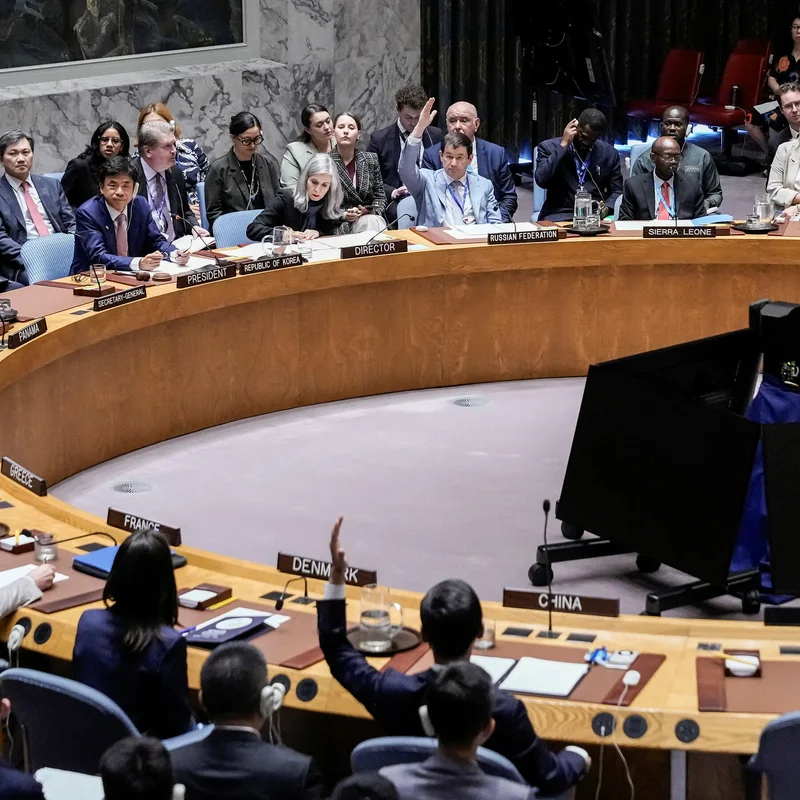Despite last-minute diplomatic efforts by Moscow and Beijing, the United Nations has allowed “snapback” sanctions against Iran to take effect early Sunday, September 28, 2025, following Tehran’s continued breaches of the 2015 nuclear deal. The failed attempt by Russia and China to delay the penalties for six months marks a significant setback for Iran and its allies—and a rare moment of Western alignment at the U.N. Security Council .
What Are “Snapback” Sanctions?
Under the 2015 Joint Comprehensive Plan of Action (JCPOA), commonly known as the Iran nuclear deal, a unique mechanism called “snapback” allows any participant to reinstate U.N. sanctions if Iran violates its commitments. Though the U.S. withdrew from the deal in 2018, European powers argue the mechanism remains valid—and on September 26, they triggered it after Iran enriched uranium to 60% purity, far beyond civilian needs .
🔍 Key Fact: Uranium enriched to 90% is weapons-grade. Iran’s 60% level is technically civilian—but only a short step away from bomb-making capability.
Why Russia and China Wanted a Delay
Moscow and Beijing proposed a six-month pause to allow for renewed diplomacy, warning that sanctions could derail fragile talks and push Iran closer to a nuclear breakout. But the U.S., U.K., France, and Germany rejected the delay, citing Iran’s:
- Installation of advanced centrifuges at Fordow and Natanz
- Refusal to grant IAEA inspectors full access
- Support for Russian drone production in Ukraine
- Ballistic missile tests in the Persian Gulf
Sanctions Now in Effect
As of Sunday, the following U.N. restrictions are reinstated:
| Category | Restrictions |
|---|---|
| Arms Embargo | Ban on imports/exports of weapons and related materiel |
| Travel Bans | Entry restrictions on 15 Iranian officials linked to nuclear program |
| Asset Freezes | Global freeze on assets of sanctioned entities |
| Technology Controls | Prohibition on nuclear-related dual-use exports to Iran |
Global Reactions
- Iran: Foreign Ministry called the move “illegal” and vowed “proportional responses,” including possible IAEA withdrawal.
- U.S. State Department: “Iran chose isolation over diplomacy. The world is responding accordingly.”
- European Union: Urged Tehran to return to compliance, warning of additional E.U. sanctions if enrichment continues.
- Russia: Accused the West of “sabotaging peace” and pledged to deepen energy ties with Tehran.
- China: Expressed “regret” but signaled it may continue oil imports via unofficial channels.
What Happens Next?
Analysts warn the snapback could accelerate Iran’s nuclear advances:
⚠️ Flowchart: Escalation Path After Sanctions
- Sanctions take effect (Sept 28)
- Iran halts IAEA inspections
- Enrichment jumps to 80–90%
- Israel or U.S. considers military options
- Regional conflict risk surges
However, some diplomats hope the pressure will force Iran back to negotiations—especially with presidential elections looming in Tehran in 2026.
For deeper analysis on nuclear diplomacy, see our feature: [INTERNAL_LINK:iran-nuclear-deal-history-and-future].
For official U.N. sanctions lists and legal texts, visit the U.N. Security Council Iran Sanctions Committee.
Sources
- https://www.nytimes.com/2025/09/26/world/middleeast/iran-sanctions-europe-russia-un.html
- https://www.un.org/securitycouncil/sanctions/2231
- https://www.iaea.org/newscenter/news/iran-nuclear-issue
- https://www.crisisgroup.org/middle-east-north-africa/gulf-and-arabian-peninsula/iran




